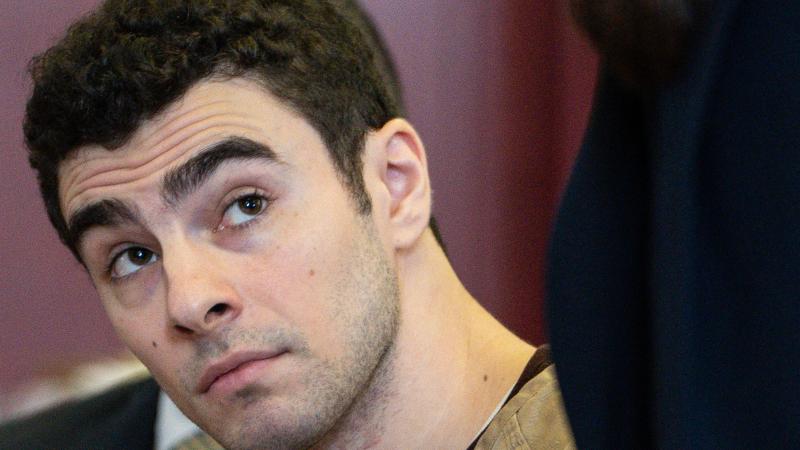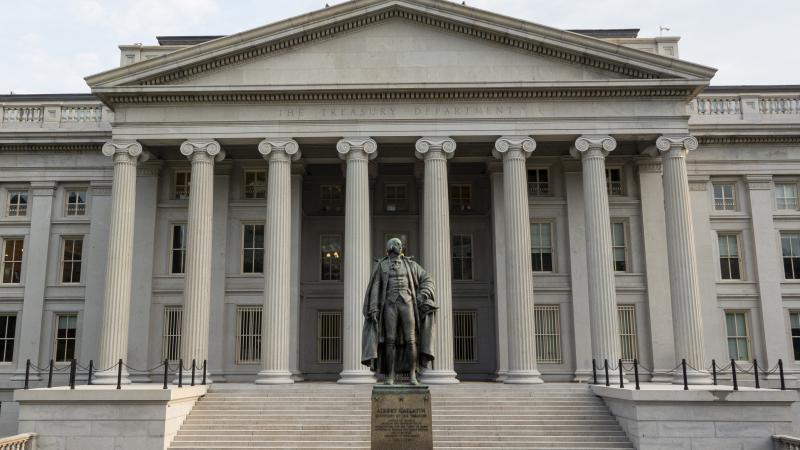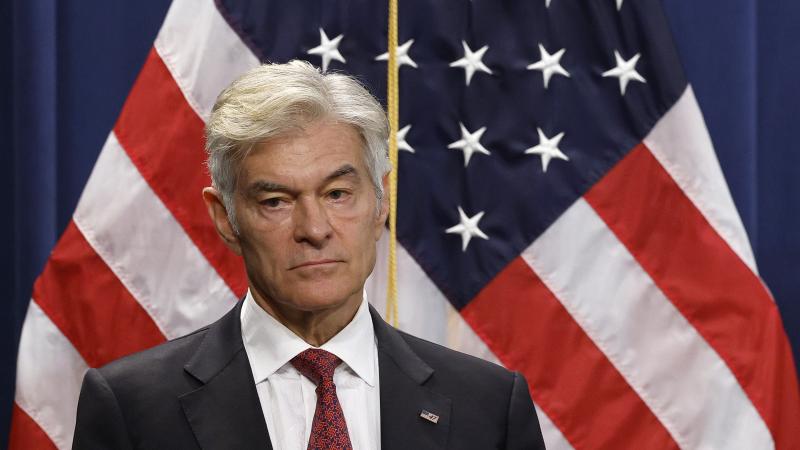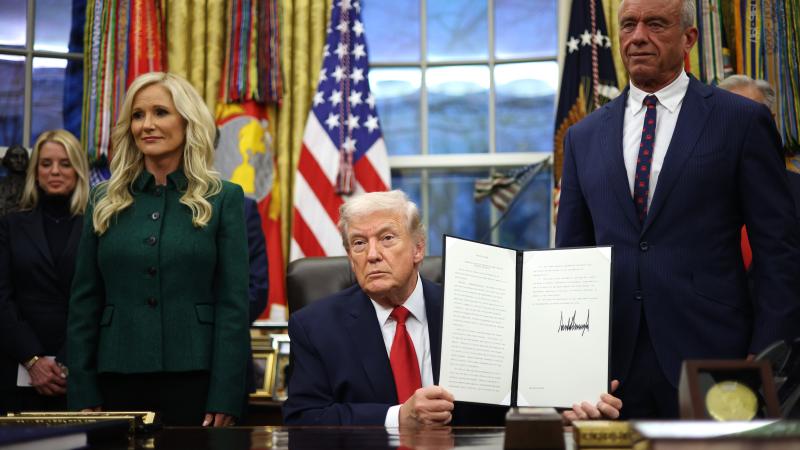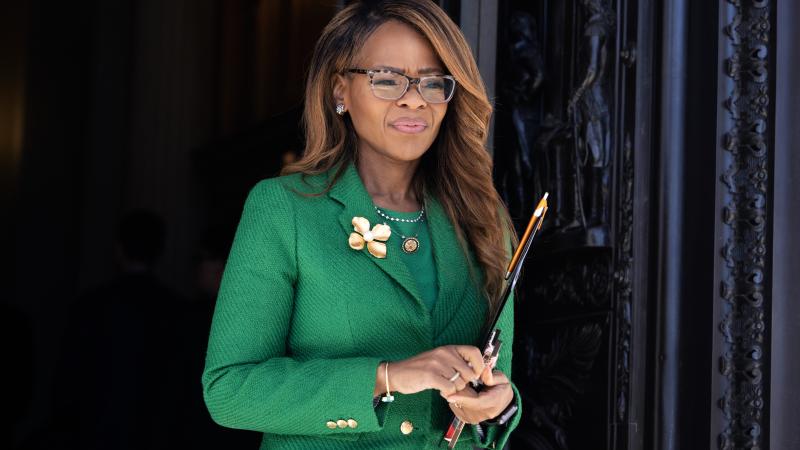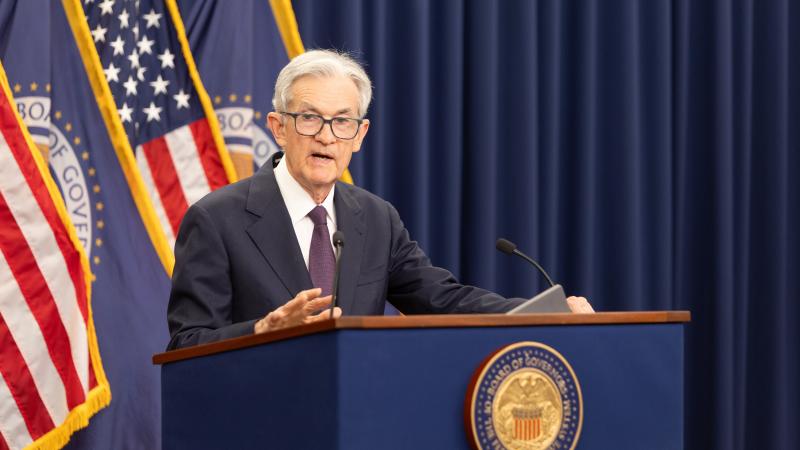Bezos, asbestos and ByteDance: SCOTUS skeptical of slippery-slope argument against TikTok ban
"You're ignoring the major concern here" of China manipulating content through TikTok's industry-envied algorithm and harvesting user data, Chief Justice John Roberts tells TikTok lawyer, Trump's former solicitor general.
The Chinese government has kidnapped the children of Jeff Bezos, forcing the owner of The Washington Post to print its propaganda. Congress orders him to shut down the storied newspaper, whose humble motto is "Democracy Dies in Darkness."
Is that constitutional?
The Supreme Court considered such eccentric hypotheticals Friday as it evaluates the pending U.S. ban on social media app TikTok absent its "qualified divestiture" by China-based ByteDance, with only nine days to rule before the bipartisan law signed by President Biden takes effect and the wildcard of pending Trump administration China policy starting the next day.
The law lets the president determine whether an owner subject to a "foreign adversary" has control over or an operational relationship with a U.S. entity, according to the Reporters Committee for Freedom of the Press, which fears it could hit "news websites that offer even rudimentary user-comment functionality" and calls its adversary list "somewhat arbitrary."
A study awaiting peer review concludes TikTok likely manipulates its algorithm to suppress anti-China content and influence user opinion on that government's human rights record, which TikTok dismissed as "[c]reating fake accounts that interact with the app in a prescribed manner" to create a "false, predetermined conclusion."
President-elect Trump filed his own brief, opposed by the Biden administration, urging the justices to stay the statutory deadline of Jan. 19 to allow "more breathing space to consider the merits" following the "highly expedited" briefing on "unprecedented" and "very significant constitutional questions."
The incoming administration could then attempt "a negotiated resolution" to take the issue out of the courts. "President Trump alone possesses the consummate dealmaking expertise" to get a deal, achieved "historic deals" in his first term, and "has a great prospect of success in this latest national security and foreign policy endeavor," the brief argues.
Lawyers for the app, allegedly the most popular with Generation Z, and its creators faced near-universal skepticism in back-to-back SCOTUS hearings Friday that probed the supposed First Amendment interests of a U.S. subsidiary that Congress says China can commandeer for intelligence purposes, and its users' rights to speak and listen.
Calling ByteDance the real target is like saying the government can shut down the Post if China gains "leverage" over Bezos, TikTok lawyer Noel Francisco – who was President Trump's solicitor general and later defended religious employers against mandated abortion coverage – told Justice Clarence Thomas: TikTok is "ultimately the one that is suffering the burden."
"You're ignoring the major concern here" of China manipulating content through TikTok's industry-envied algorithm and harvesting user data, Chief Justice John Roberts said. Francisco said he wasn't, but that "it doesn't matter" whether ByteDance has "ultimate control."
Justice Sonia Sotomayor was amazed that Francisco seemed to argue that forcing TikTok to disclose Chinese influence to users is "the only remedy the government could undertake." She said previous compelled disclosure laws "haven't been very effective."
Francisco had a ready answer to Justice Brett Kavanaugh's invocation of a long U.S. tradition of preventing foreign ownership or control of media: It only pertains to "bandwidth scarcity" and the limited number of licenses for the public airwaves.
When Justice Samuel Alito asked why a foreign government could functionally obtain First Amendment rights through a "contrived corporate structure" that gives it American influence, Francisco said that theory would have authorized Congress to censor films shown in AMC Theatres when it was majority-controlled by a Chinese company.
Justice Neil Gorsuch was irked about outstanding factual disputes between the parties, reciting several government claims for Francisco to rebut.
Nothing in the record shows TikTok doesn't have its own independent authority, and it "does have a choice over the algorithm" and could shut it down despite ByteDance's ownership, its counsel said. China only asserts intellectual property in some "source code," not the "recommendation engine" itself, according to Francisco.
He can't respond to U.S. claims that ByteDance has caved to Chinese government demands outside the U.S. because it's based on redacted evidence, and he said what's public shows no removals or restrictions in other countries.
The algorithm includes how TikTok predicts customer interest, its editorial discretion and moderation, and engages when source code is translated to "executable code" in the U.S., Francisco told Justice Amy Coney Barrett.
When she asked whether ByteDance's alleged "covert content manipulation" is speech, the lawyer said TikTok "absolutely resist[s] any kind of content manipulation by China" but "mere covertness" can't be the basis of the sweeping U.S. law, which singles out one speaker – "just to make the rubble bounce" – for fear of "future content" that criticizes the U.S.
The justices seemed to believe algorithms were somewhat interchangeable and TikTok could invent or purchase another, with Justice Elena Kagan calling ByteDance's "incidental" to TikTok and asking why the Chinese company couldn't make it "open source."
Users "choose this algorithm because it reflects a mix of content," Francisco responded. The government's argument is no different than if it tried to shut down TikTok for being too "pro-Democrat" or New York forced The New York Times to clean up asbestos in its building because it dislikes the editorial page.
Roberts got Francisco to admit he knew of no SCOTUS precedent that implies interfering with ownership is tantamount to interference with other's expressive conduct. The law just says "somebody other than the Chinese government" has to control TikTok, Roberts said.
TikTok is like old clothing you don't throw away?
Alito asked how the First Amendment would be implicated if Congress had just said it wants to stop an "enormously powerful, popular application from gathering an arsenal of information about American citizens," without reference to content or manipulation. Lawmakers have the right to target the worst offender in their judgment, the justice said.
Stanford law professor Jeffrey Fisher, again representing TikTok creators, fared little better before the justices, though Justice Gorsuch aided him by airing concern about the government's "increased appeals to secret evidence," withheld from opposing counsel.
Gorsuch mused why Congress hadn't weighed in on that practice. Fisher said that the appeals court ruled for the government on the public record before the motions on classified evidence could be resolved.
The law would fail under any level of judicial scrutiny, defying U.S. history, tradition and precedent that acknowledges Americans' right to speak in conjunction with foreign speakers and even to receive information from foreign governments, he said.
Enemies have long pursued "ideological campaigns" against America, which would become like them if the U.S. restricts speech because "it sowed doubt about our leaders" – explicitly cited as a concern in the law's text, Fisher said.
The "breakup of AT&T" undermines Fisher's argument about American creators having the right to work with foreign publishers, Justice Thomas said. The ownership is "the essence of the viewpoint," Fisher responded, citing the strong brands of X, Fox News and MSNBC.
"You have to dig underneath what is the national security claim," he told Justice Ketanji Brown Jackson, noting the government keeps mentioning the algorithm. "A mix of cat videos or dance videos doesn't affect national security."
Fisher dismissed the government's proffered concern for data security as a ruse, noting the law's exemptions for business, product and travel sites cover Chinese e-commerce giant Temu, which has a reported 50 million U.S. monthly active users.
"Does Congress have to go all-or-nothing on that?" Justice Kavanaugh asked, speculating Congress could next target Temu. It's telling that lawmakers left alone companies whose data are "equally if not more available to Chinese control," Fisher said.
Alito didn't understand why another social media company could not "take advantage of this very lucrative market" by poaching TikTok creators, asking if Fisher's clients treat the platform like a favorite old piece of clothing and believe only ByteDance has a "magical algorithm."
The Facts Inside Our Reporter's Notebook
Links
- Supreme Court considered such eccentric hypotheticals
- Reporters Committee for Freedom of the Press
- TikTok likely manipulates its algorithm to suppress anti-China content
- President-elect Trump filed his own brief
- opposed by the Biden administration
- stay the statutory deadline of Jan. 19
- the most popular with Generation Z
- defended religious employers against mandated abortion coverage
- majority-controlled by a Chinese company.
- Jeffrey Fisher, again representing TikTok creators
- reported 50 million U.S. monthly active users

